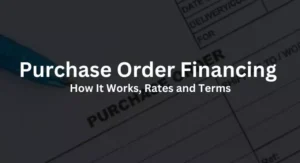
Taxes. Business owners have a chill down their spines just hearing the name. Taxes include so many different considerations that they may be overwhelming. For instance, there are more than 3.8 million words to go through in the federal income tax law. Your brain will spin from the sheer amount of knowledge. That is why having a competent tax professional on your side is crucial.
Although it is true that companies of all sizes pay an average tax rate of around 19.8%, we are used to paying taxes annually on our company’s income. Small enterprises with one owner typically pay a tax rate of 13.3 percent, whereas those with several owners pay a rate of 23.6 percent.
An essential component of your company is knowing how the tax system operates. It might be confusing to know where to turn with all the recent tax changes. This is the reason we wrote a blog post outlining the fundamentals of taxation and how small companies need to handle it.
How do taxes work for a small business?
A significant portion of operating a small company is paying taxes. The roads you travel on, the schools your children attend, and the fire service that guards your house are all supported in part by taxes. Because of the complexity of the tax system, taxes may be difficult for small company owners to understand. Your small business’s choice of entity type is one of the main tax-related variables. The business structure is that. The kind of company structure you choose is dependent on a number of variables, but it is often based on the volume of paperwork, the number of meetings necessary, and other general drawbacks of a certain business structure. The Internal Revenue Service (IRS) provides a small company tax guide that may assist you in figuring out how much tax you must pay and which tax documents you must submit annually.
How do business structures impact taxes?
It helps to first grasp what company structures are in order to comprehend how they affect taxes. The various legal configurations for companies are referred to as business structures. Businesses may be set up as corporations, S corporations, limited liability companies, partnerships, or sole proprietorships. The most common kind of company structure is a sole proprietorship, which has only one owner. However, you must choose how to structure your company if you have more than one owner. The choice usually comes down to personality.
- Would you like to operate the company alone or with partners?
- Do you want to restrict company owners’ liability?
- Do you wish to reduce your debt-related liabilities for your company?
Except for corporations that want to convert to an LLC or a limited liability partnership, businesses cannot modify their legal form (LLP). But it’s wise to choose a company structure that suits you from the start.
The tax requirements of a small company owner may be significantly impacted by the business structure. Your choice of company structure may have an influence on who is responsible for paying taxes and how much is due. Remember that not everyone benefits from the same kind of company structure. When it comes to corporate structures, there is no universally applicable answer. Therefore, it’s crucial to take some time to sit down and honestly evaluate your company and your objectives. Here are the three most typical corporate structures and what makes them unique.
Do I have to pay taxes as a small business owner?
The sort of small company you operate will determine the response. According to the Internal Revenue Service, the majority of small companies are classified as “pass-through” firms because their owners record their portion of the business’s profit or loss on their income tax return. If your company is organised as a corporation, the income is taxed, and shareholders who get dividends are also subject to taxation. The SBA provides a straightforward graph that shows the tax rates for small companies. Most small firms, according to the SBA, meet the criteria to be pass-through organisations, which means they must pay individual tax rates on their share of profit or loss. Two charts that show the tax rates for small companies are provided by the IRS. While the second displays the tax rates for S companies and C corporations, the first illustrates the rates for partnerships and sole proprietorships.
The tax burdens that small businesses face daily.
An average American small company owner pays $8,974 in taxes annually, according a 2012 National Small Business Association report. Depending on the kind of company and its location, the sum varies. For instance, a small company owner who resides in a state with high taxes, such as New York or California, would pay far more than a business owner who does. The cost is also influenced by the size of the company. Taxes are paid differently by the owner of a small firm with one employee compared to one with fifty. Taxes for small enterprises with less than 10 workers average $1,622 annually, whereas taxes for large businesses with 100 or more employees average $31,814 annually.
Many firms promise to preserve an accurate bookkeeping record of your whole company, which aids in your timely tax payment. For instance, Vancouver Bookkeepers assist their clients with timely tax payments and other significant transactions while also keeping records of a company’s financial activities.
The importance of tax planning for a small business.
For any small company, tax season is one of the busiest periods of the year. Each small company owner has different strategies for making the most of their resources. However, if you aren’t using all of the legitimate tax incentives to which you are entitled, your company’s bottom line will suffer. The majority of small company owners, however, do not place tax preparation at the top of their priority list. Approximately 40% of small company owners don’t even file for all of the allowable tax deductions, according to an SBA study. Unfortunately, there are a number of tax incentives that may help you save money, lower your tax bill, and boost your company’s net profit.
Conclusion
Don’t be intimidated by the thought of taxes; small firms have to deal with them too. To help alleviate your mind a little bit, try to use internet tax calculators. Particularly for the self-employed, a skilled tax professional may greatly simplify the procedure.







